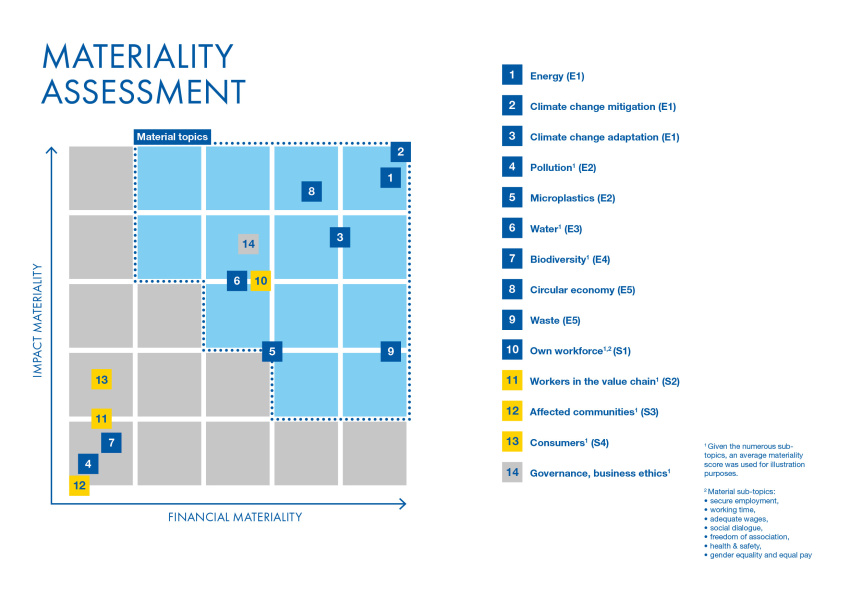Double materiality assessment
The double materiality assessment evaluated the impacts, risks and opportunities associated with ALPLA’s activities from both an impact materiality and financial materiality perspective. The process involved key internal stakeholders and considered the entire value chain. After ALPLA colleagues reviewed the positive and negative impacts (impact materiality) as well as risks and opportunities (financial materiality) of a long list of sustainability topics, a detailed assessment was conducted for a shortlist of topics to identify the material ones. A threshold of 0.65 (for either impact or financial materiality) was applied to determine our conclusion.
In 2025, we will work on updating the materiality assessment, including the views of external stakeholders as well.


